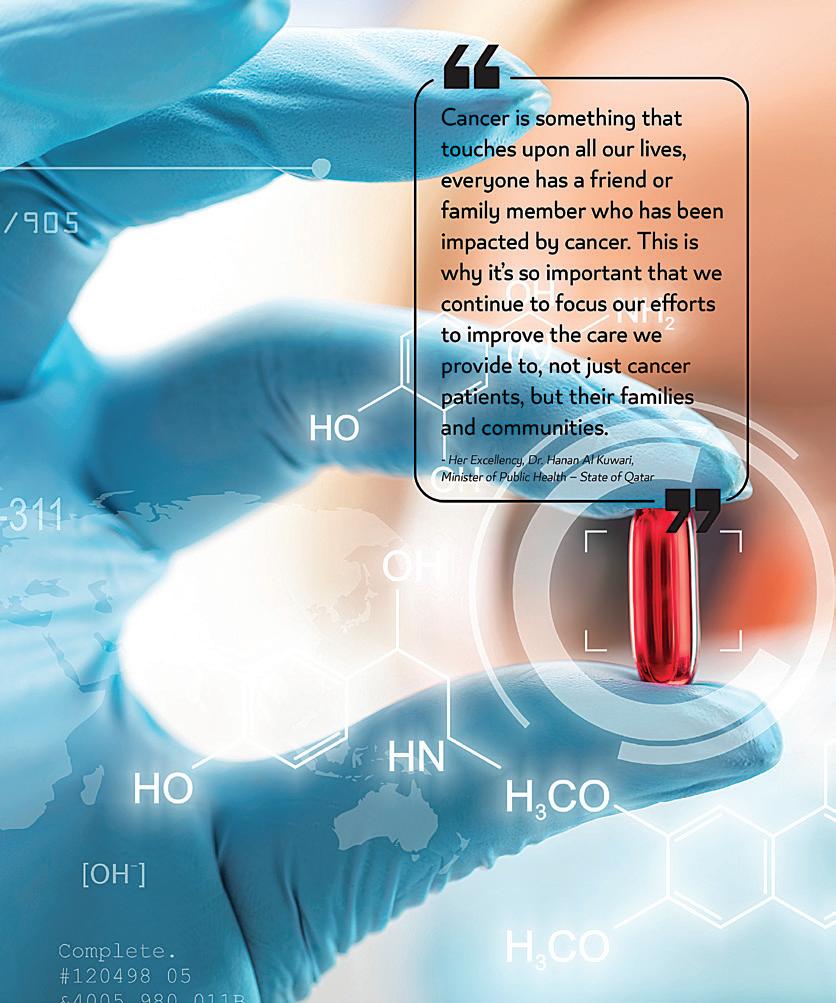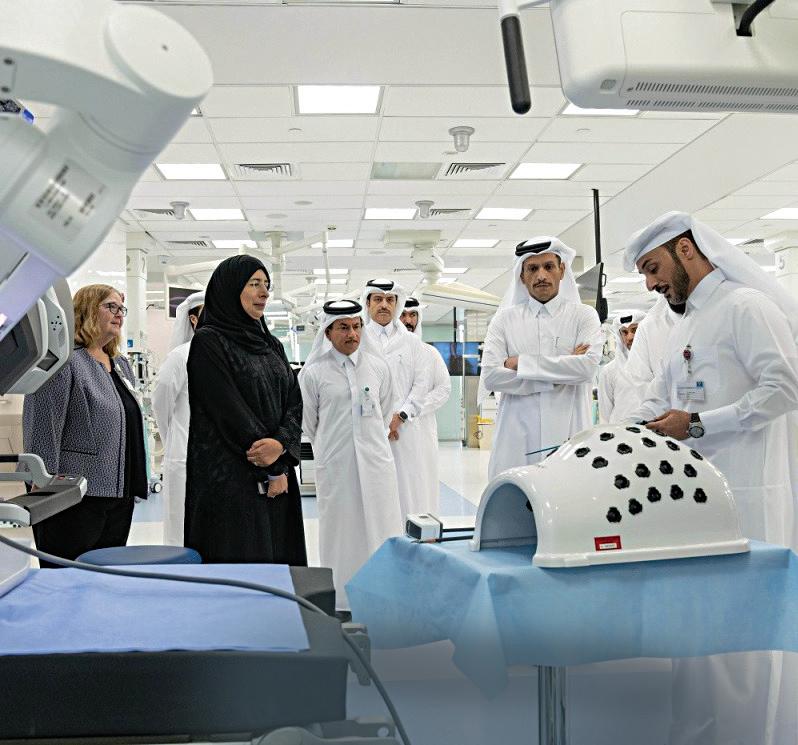
3 minute read
New Qatar Cancer Plan Launched
By Sarah Palmer
The inauguration ceremony for the launch of Qatar Cancer Plan 2023–2026 took place in June 2023.
The ceremony took place at Itqan Clinical Simulation and Innovation Center in Hamad Bin Khalifa Medical City, and was attended by HE Sheikh Mohammed bin Abdulrahman bin Jassim Al Thani, the Prime Minister and Minister of Foreign Affairs, HE Dr Hanan Mohamed Al Kuwari, the Minister of Public Health, and senior representatives from the healthcare sector.
HE Dr Hanan Mohammed Al Kuwari stated at the ceremony that 'The launch of the Qatar Cancer Plan comes within the framework of the State of Qatar's keenness to provide the best sustainable health services to the current and future generations, in accordance with the directions of the leadership, and to achieve the Qatar National Vision 2030.
'Through the Qatar Cancer Plan for Excellence for All, we strive to continuously improve the care we provide to cancer patients, their families, and the community.'
HE Al Kuwari also commented that the Qatar Cancer Plan aims to further enhance the capacity and the capability of the health system, ensuring that the people of Qatar have access to the best possible care, and ensure that Qatar is recognised as a regional leader in cancer care.
In his speech, the Director of the Public Health Department at the Ministry of Public Health Sheikh Dr Mohammed bin Hamad Al Thani said that the Qatar Cancer Plan 2023–2026 lays the foundation for a new aspect of comprehensive cancer care. This includes the psychological and social aspects of patients, while the plan develops clinical research and supports international cooperation through the establishment of the Cancer Research Office at the Ministry of Public Health.
Chair of the National Cancer Governance Council Professor Lord Darzi was also in attendance and gave a presentation on the highlights of the Qatar Cancer Plan 2023–2026: 'The plan sets out strategic objects and deliverables that will fundamentally alter how cancer care is delivered introducing new services, facilities, and models of care that will have direct impacts on the quality of care for those with cancer, and the support provided to patients, survivors, care givers and the wider community across Qatar.'
Qatar Cancer Plan 2023–2026 was developed in collaboration with key stakeholders in Qatar and with the support of World Health Organization experts. The plan is based on a strategic collaborative approach between all national health authorities and providers, allowing the patient to be fully supported and assessed. The plan will cover awareness, prevention, early detection, proper diagnosis, holistic treatment, and palliative care.
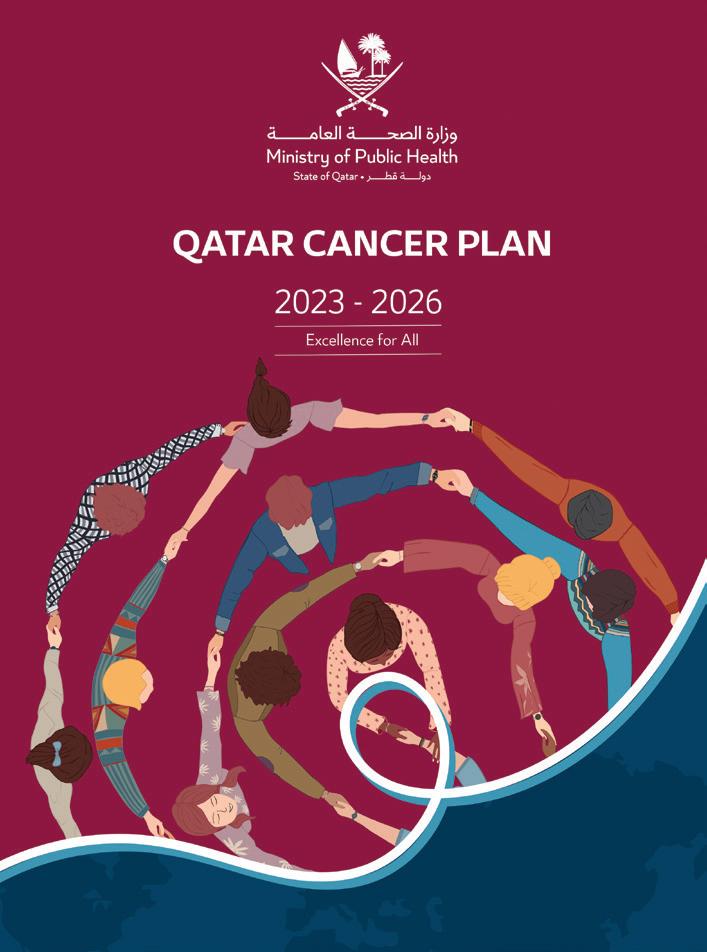
Under the plan are 87 clear, tangible and measurable deliverables within a robust governance framework. These deliverables are based on the importance of improving cancer care services, investing to bring benefits to public health and saving lives, improving care and support, and seeing a positive return on this investment by achieving better results for sustainable health services.
The deliverables are organised under 23 strategic objectives across seven chapters: • prevention and public education • early detection and screening • quality treatment and ongoing care • holistic support • childhood cancers • surveillance and research • and strategic enablers.
Qatar Cancer Plan 2023–2026 builds upon the National Cancer Strategy 2011–2016 and the National Cancer Framework 2017–2022, which contributed to achieving excellence in cancer care in Qatar via superior care services to the population. One notable achievement is that Qatar is the first country in the world where a patient with suspected cancer receives secondary medical care from a specialist within 48 hours, the disease is diagnosed within two weeks, and the patient receives treatment within two more weeks.
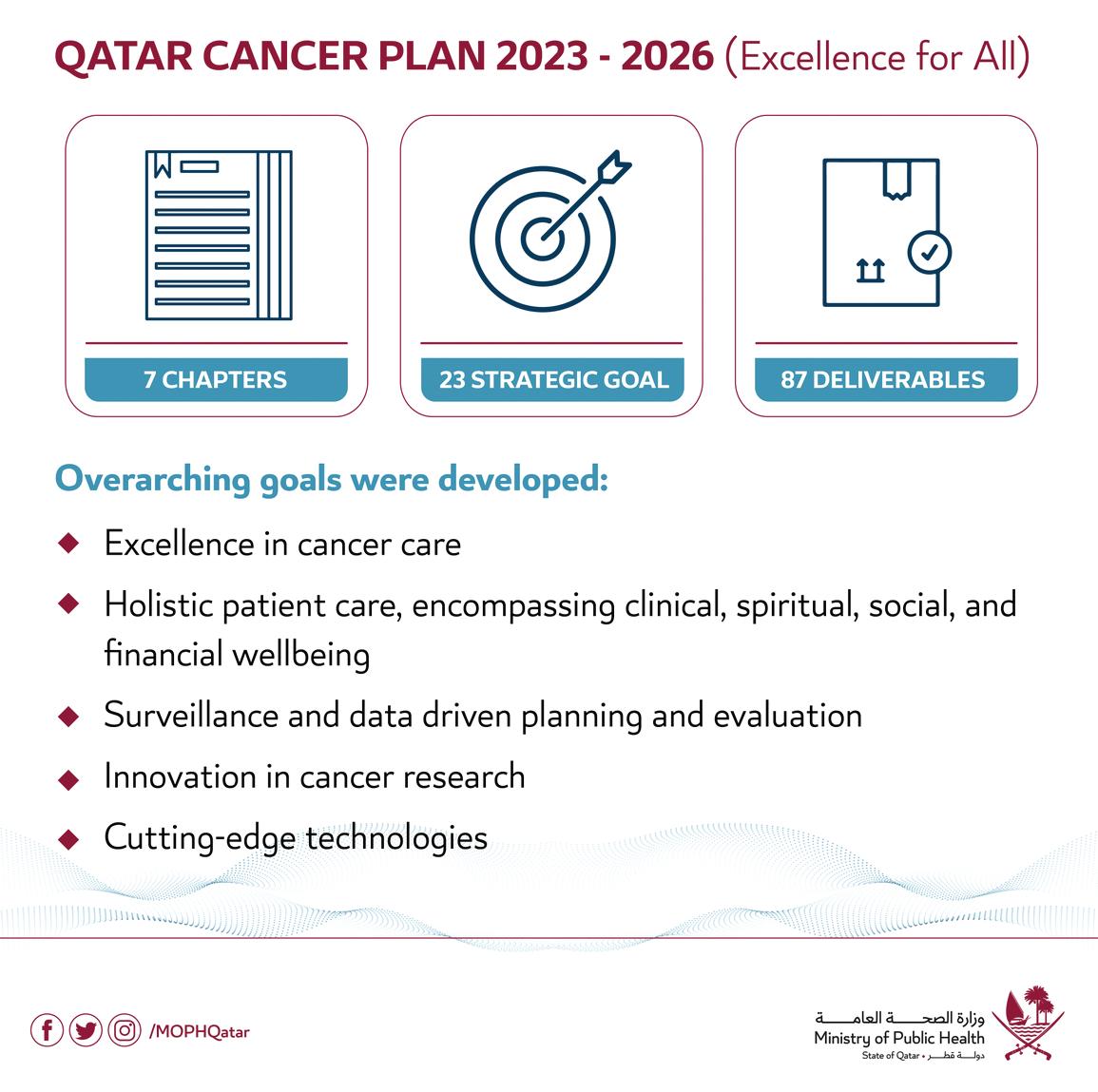
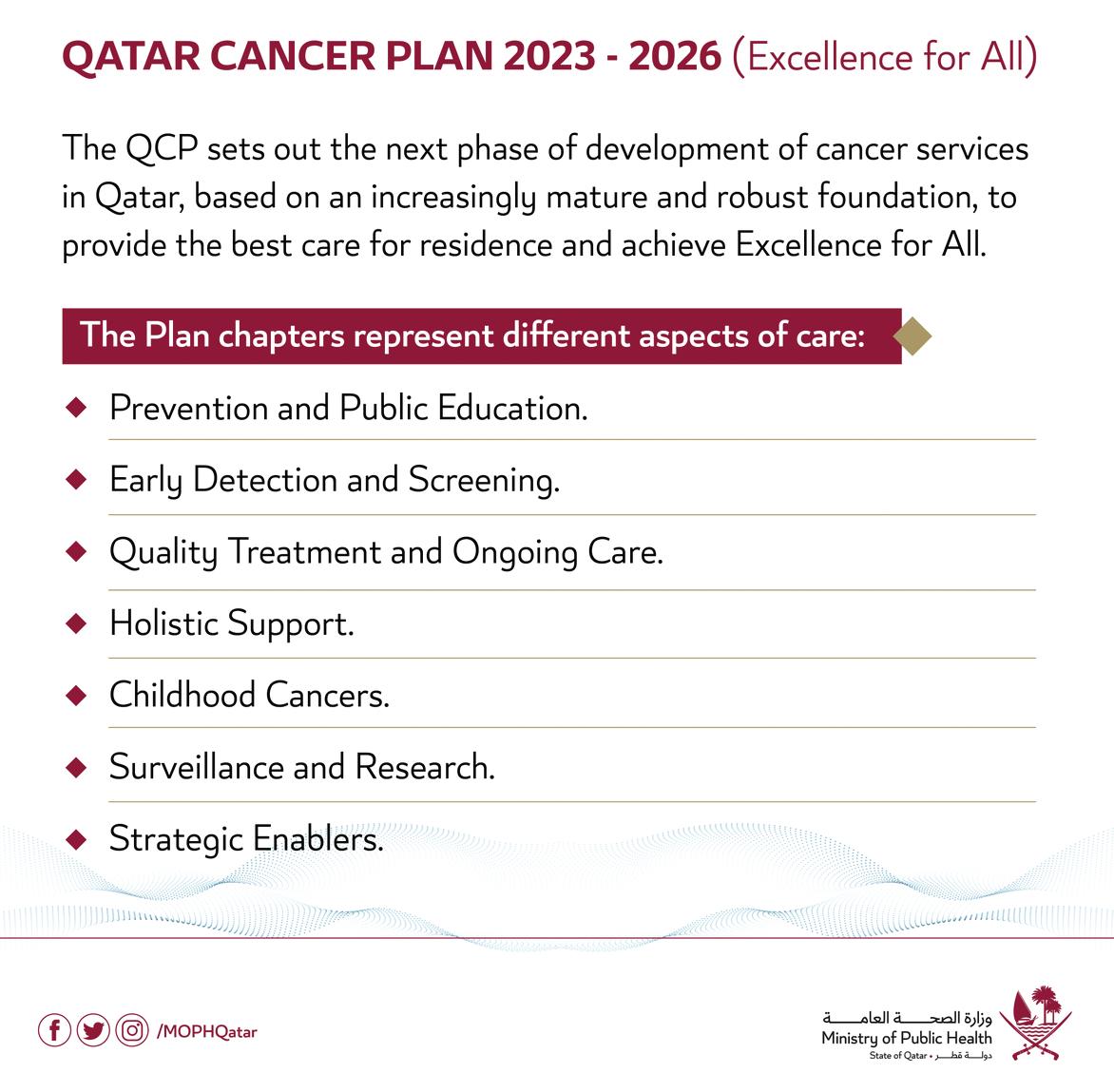
Speaking at the press conference held for the plan's launch, CEO and Medical Director of the National Center for Cancer Care and Research (NCCCR)
Mohammed Salem Jaber Al Hassan remarked that many new initiatives and programmes have been created to detect and treat cancer, like early detection for those who have a higher risk due to hereditary reasons, and new treatment techniques based on the patient's genes for personalised treatment.
According to Al Hassan, a home care service is currently provided to cancer patients upon request, allowing for those cancer patients who do not wish to stay in hospital to be treated in their homes by a specialised medical team, if their condition allows them to do so.
The new Qatar Cancer Plan will also enhance efforts aimed at the early detection of cancer in Qatar. The cancer early detection programme currently targets early detection of bowel and breast cancer, and this is expected to expand to detection of others, such as lung, cervical, and thyroid cancers.
More information is available from the Ministry of Public Health at moph.gov.qa and Qatar Cancer Information Centre (QCIC) at qcic.moph.gov.qa, the national repository of cancer related information in Qatar. m
